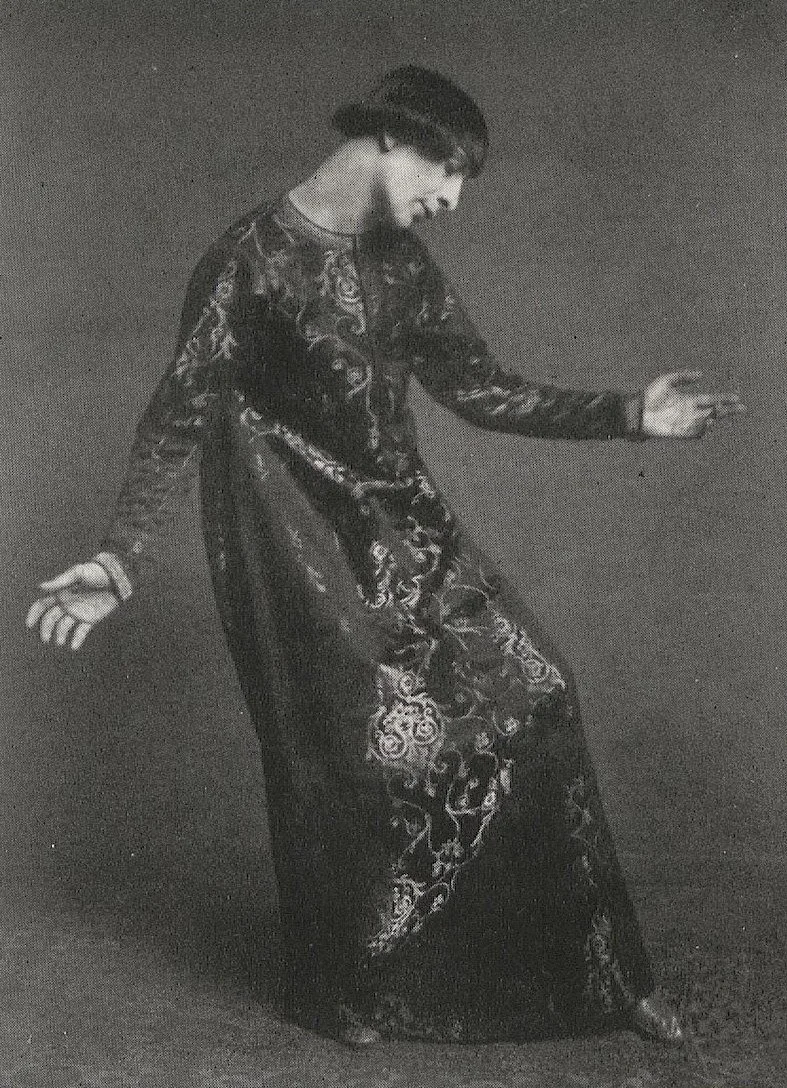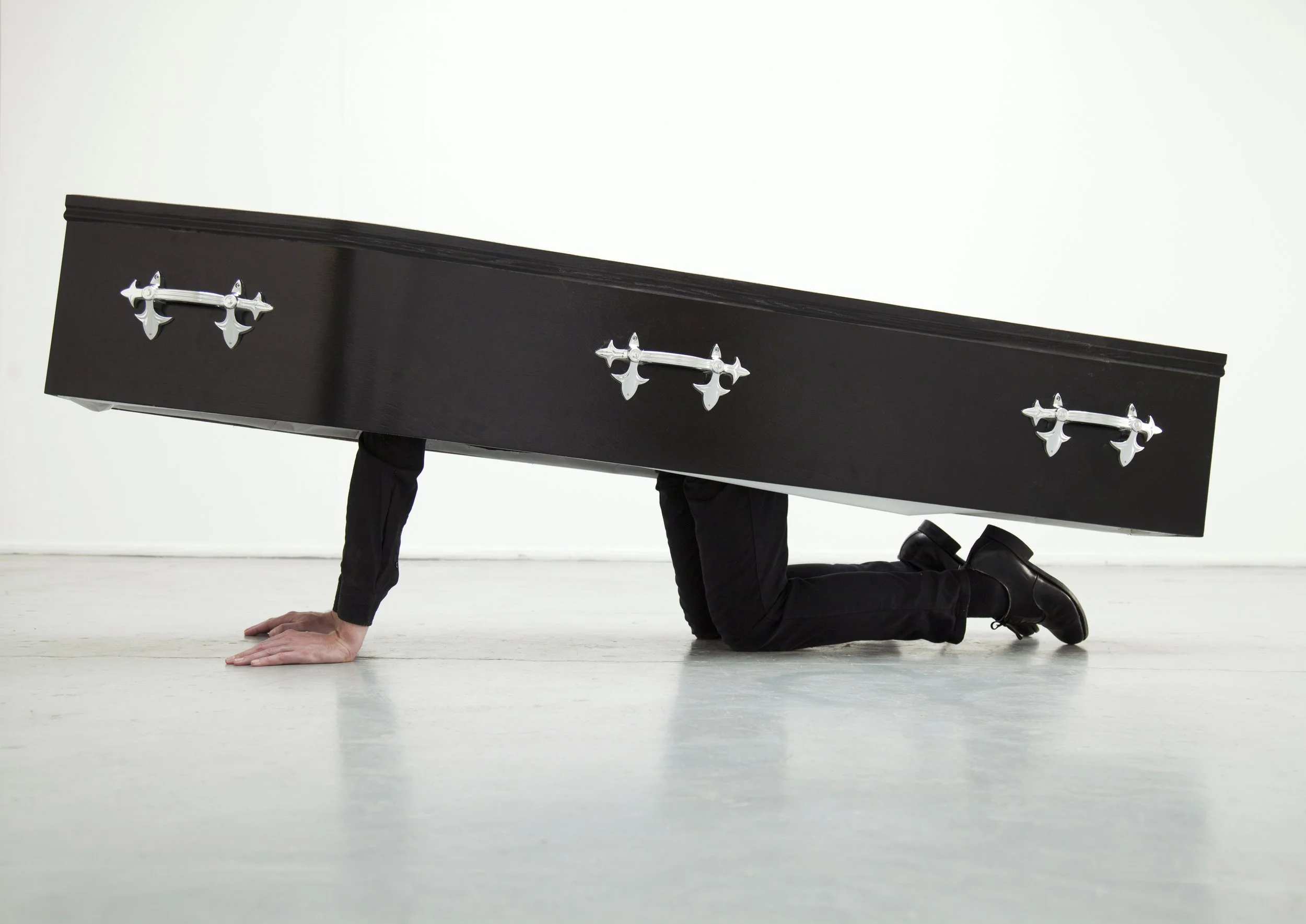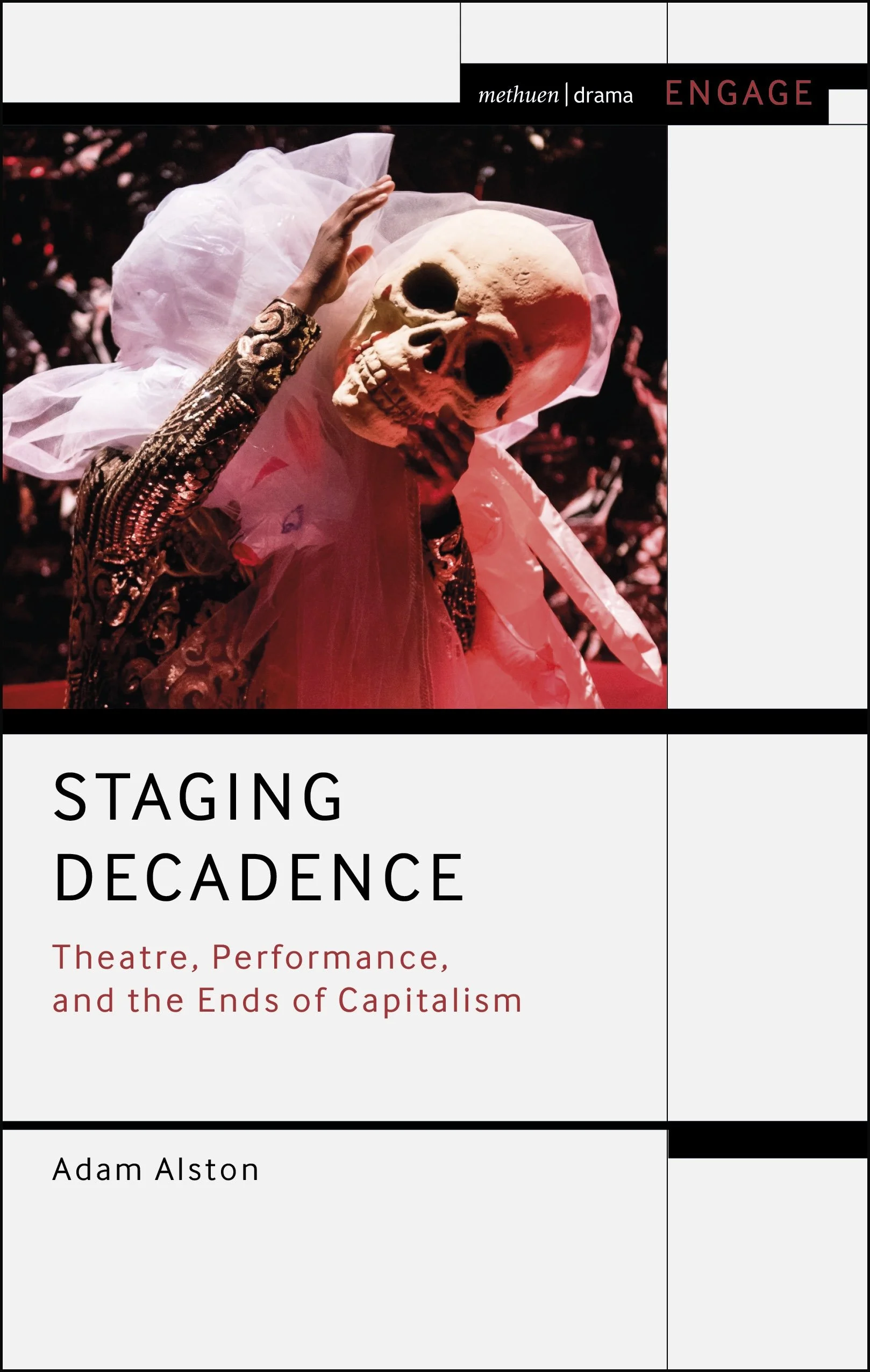INTERDISCIPLINARY JOURNAL OF DECADENCE STUDIES
Volume 4, Issue 2: Winter 2021
Decadence and Performance
This special themed issue of Volupté, edited by Adam Alston and Alexandra Bickley Trott, is dedicated to decadence and performance. What does decadence look like in the flesh? In what ways have theatre and performance makers past and present been experimenting with the aesthetics and politics of decadence? How has it been mobilised as political capital, and how might it be embodied?
Cutting across theatre and performance of the past 150 years, this issue considers an expansive range of performance forms exploring sadomasochistic pleasures, gender-queer choreographies, decadent environments, and countercultural chaos, as well as twenty-first century live and digital artworks.
Contributors: Özen Nergis Dolcerocca, Barbara Bessac, Frankie Dytor, Katharina Herold-Zanker, Amano Ikuho, Stephen Cedars, Adam Alston, Owen Parry, and Phoebe Patey-Feguson. The issue also includes texts by the British Association of Decadence Studies’ prize winners for the year – Cherrie Kwok, David Melville, and Céline Brossillon – alongside a letter to the journal’s editors from David Weir.
Image: Hans Hoffman, Frührenaissance-Tanz-Studie, photograph of Alexander Sacharoff, 1912.
STAGING DECADENCE
THEATRE, PERFORMANCE, AND THE ENDS OF CAPITALISM
How is decadence being staged today – as a practice, issue, pejorative, and as a site of pleasure? Where might we find it, why might we look for it, and who is decadence for?
This book is the first monographic study of decadence in theatre and performance. Adam Alston makes a passionate case for the contemporary relevance of decadence in the thick of a resurgent culture war by focusing on its antithetical relationship to capitalist-led growth, progress, and intensified productivity. He argues that the qualities used to disparage the study and practice of theatre and performance are the very things we should embrace in celebrating their value – namely, their spectacular uselessness, wastefulness, outmodedness, and abundant potential for producing forms of creativity that flow away from the ends and excesses of capitalism.
Alston covers an eclectic range of examples by Julia Bardsley (UK), Hasard Le Sin (Finland), jaamil olawale kosoko (USA), Toco Nikaido (Japan), Martin O'Brien (UK), Toshiki Okada (Japan), Marcel·lí Antúnez Roca (Spain), Normandy Sherwood (USA), The Uhuruverse (USA), Nia O. Witherspoon (USA), and Wunderbaum (Netherlands). Expect ruminations on monstrous scenographies, catatonic choreographies, turbo-charged freneticism, visions of the apocalypse – and what might lie in its wake.
Winner of the Theatre and Performance Research Association’s David Bradby Monograph Award 2024.
Banner image: Martin O’Brien, The Last Breath Society (2021). Institute for Contemporary Art, London. Photo by Holly Revell.
DECADENT PLAYS: 1890-1930
Poisoned cigars, seductive apparitions, minds and empires in the last of their decline and the most notorious kiss in dramatic history – decadent plays challenged the moral as much as the dramatic imagination of their own day, and continue to probe horizons of taste and the possibilities of stagecraft.
In the late 19th and early 20th centuries, many writers reacted to urban modernity by embracing decadent themes and styles, and dramatists were no exception. Decadence offered these writers a framework for exploring nonconformist identities and beliefs that challenged behavioural norms as much as the desirability of modern progress. Decadent plays were at once behind the times in their celebration of antiquity, and forward-thinking in their staging of themes that have become all the more timely in the 21st century, including queerness, unconventional eroticism, and critiques of empire and industrial progress. Equally, the diversity of decadent drama cannot be pigeon-holed; many of these plays still have the capacity to offend worldviews, and invite us to interrogate present-day conventions and propriety.
International in scope and eclectic in content, this edited anthology is an authoritative and accessible introduction to a fast-expanding field of decadent literature. The first publication of its kind to deal with decadent drama, and featuring plays translated into English for the first time, Decadent Plays: 1890 to 1930 breaks new ground by foregrounding decadence as a dramatic sensibility in this most pivotal of periods in the history of modern drama.
Featuring canonical and little-known works by Oscar Wilde, Michael Field, Lesya Ukrainka, Rachilde, Remy de Gourmont, Jean Lorrain, Leonid Andreyev, Gabriele D’Annunzio, Maurice Maeterlinck, Izumi Kyōka, and Djuna Barnes, this anthology is an essential introduction to decadent drama that will pique the interest of specialists and non-specialists alike.
Cover image: Jaamil Olawale Kosoko, Séancers (2017). American Realness Festival. Photo by Ian Douglas.
NINETEENTH-CENTURY LITERATURE IN TRANSITION:
In this collection, editors Dustin Friedman and Kristin Mahoney consider the 1890s as one of the most dynamic decades of the Victorian era. The volume makes a case for why the decade continues to be an area of perennial fascination, focusing on transnational connections, gender and sexuality, ecological concerns, technological innovations, and other current critical trends. It includes a chapter by Adam Alston on ‘Decadence and the Antitheatrical Prejudice’, which looks at the discursive production of theatre as a decadent institution over the course of the fin de siècle in Britain and France, focusing especially on the prevalence of the antitheatrical prejudice at the time. It considers why theatre was thought to be inadequate or injurious on the basis of several kinds of impurity, including the pejorative condemnation of its potentially viral degeneracy (moral impurity), critical ruminations on creative sclerosis and declining artistic standards (aesthetic impurity), as well as the reasons why several prominent playwrights and critics of the period who were closely associated with both decadence and symbolism were uneasy about the staging of decadent drama (metaphysical impurity). Alston argues that theatre’s decadent ‘wrongness’ may be the best starting point we have for appreciating its role in a nascent modernism.






